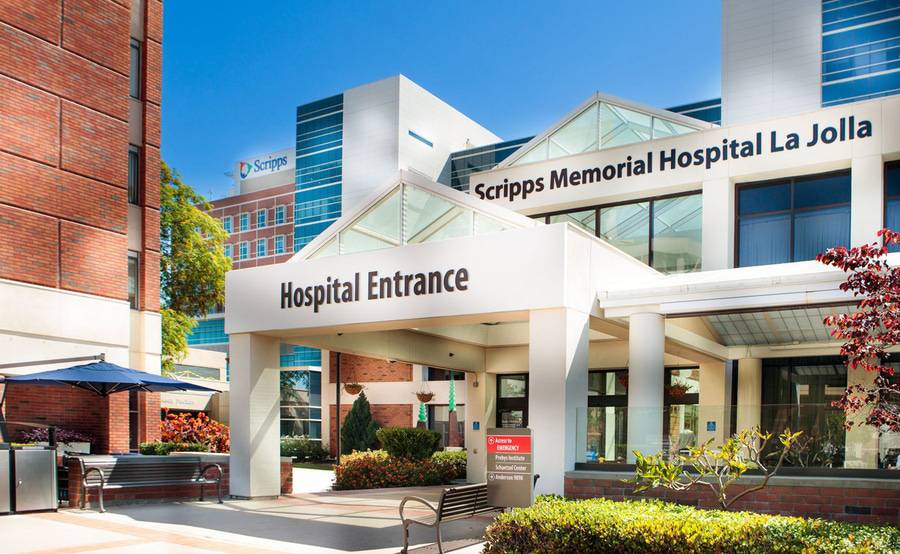Birthing Locations
Warm, caring maternity hospitals in San Diego
At Scripps Health, we’re committed to providing you and your growing family with the highest-quality care throughout your stay — from labor and delivery to postpartum recovery. We have three specialized maternity hospitals in San Diego (sometimes referred to as birthing centers). You’ll be cared for by expert, multidisciplinary teams with compassion, support and respect for your birth plan.
The labor and delivery hospitals at Scripps offer:
- Specially trained physicians and nurses
- Certified nurse-midwives (in La Jolla and Encinitas)
- Lactation consultants and breastfeeding support
- Certified childbirth educators
Learn more about giving birth at our three labor and delivery hospitals in San Diego below, including hospital tours, midwife options, birth plans, breastfeeding support, NICUs and postpartum care.
Scripps La Jolla Maternal and Child Health

Scripps La Jolla Maternal and Child Health
At Scripps Memorial Hospital La Jolla, you and your newborn will be cared for in a warm and caring environment. In our specialized Women’s Center, you can go through labor, delivery and recovery all in one room. After delivery, you and your baby will enjoy a private postpartum room.
Take a guided virtual tour and learn more about having a baby at Scripps Memorial Hospital La Jolla.
Scripps Encinitas Birthing Pavilion

Scripps Encinitas Birthing Pavilion
At the Family Birth Pavilion at Scripps Memorial Hospital Encinitas, you’ll find expert maternity care in a soothing environment. The pavilion’s beach theme and seascape art offers a warm and inviting atmosphere. We practice holistic approaches and work with many types of birth plans. After delivery, you and your new baby will stay together in a private postpartum room.
Take a guided virtual tour and learn more about having a baby at Scripps Memorial Hospital Encinitas.
Scripps Mercy Hospital Family Birth Unit

Scripps Mercy Hospital Family Birth Unit
At Scripps Mercy Hospital San Diego, you and your newborn will receive personalized care throughout your stay at our hospital in Hillcrest. Our carousel-themed décor sets a welcoming tone for growing families. You’ll experience labor, delivery and recovery all in the same room. After delivery, you and your new baby will stay together in a postpartum room.
Take a guided virtual tour and learn more about having a baby at Scripps Mercy Hospital San Diego.